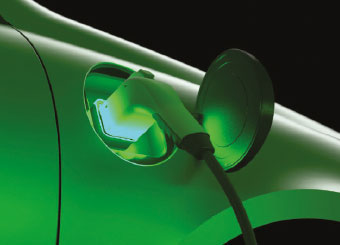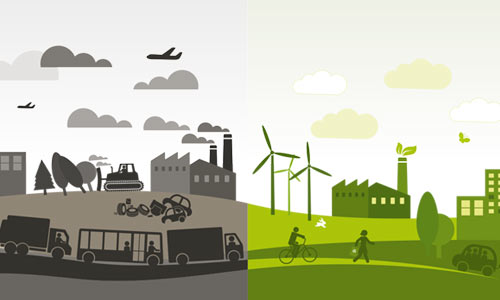Climate change and energy equality are often seen as competing concerns, but new Manchester research is showing how joined-up thinking could bring real progress.
This year, we’ve seen extreme weather, rising oceans and crop failures across the globe. With these has come a renewed public and political focus on climate change and sustainability.
Yet when the heatwaves subside and the crops renew, will we put these concerns on hold, switching our attention instead to more immediate issues? Often, environmental and socioeconomic agendas can appear at odds.
But what if addressing these agendas could go hand in hand? What if we could give more people access to modern energy services and tackle global emissions at the same time?
Several new research projects at The University’s Manchester Urban Institute (MUI) are showing how a joined-up approach could bring benefits for human health and well- being, economic productivity, environmental sustainability and urban development alike.
Getting cities right is the biggest challenge facing the planet right now.
Energy poverty and health
Tackling energy poverty and climate change may appear to be conflicting aims – but a recently completed Europe-wide project shows they are anything but. According to the COMBI project, investing in the energy efficiency of residential dwellings can help address wider societal challenges.
“Because homes that are more energy-efficient – in terms of appliances, built fabric and heating/cooling systems – emit less CO₂, they also reduce household energy bills, in turn reducing the risk of falling into energy poverty,” explains the MUI’s Professor Stefan Bouzarovski, principal investigator on the project.
“We found that energy-efficiency improvements in homes in the EU could avoid up to 27,500 premature deaths from indoor cold between now and 2030.”
In addition to health benefits, these improvements could have a huge economic value, for example saving up to €2.5 billion (£2.2 billion) by cutting premature mortality from indoor cold, and up to €2.9 billion (£2.5 billion) due to asthma morbidity from indoor dampness.
Models developed through the project are now being used by policymakers and NGOs to support energy-efficiency proposals.
Thermal comfort
A complementary project also steered by Professor Bouzarovski has led to calls for a change in housing policy across Europe.
The EVALUATE project set out to investigate challenges around energy, equity and sustainability, and found energy efficiency to be a key factor in determining levels of thermal comfort. As energy prices rise, households may turn the heating off more in order to afford their bills. But houses can be draughty and many lose heat easily. The project identified warm-weather space-cooling as a significant challenge across the global north in light of climate change pressures.
“We recommended the establishment of a minimum standard for housing across Europe and the banning of disconnections for consumers. Such measures are clear win-win solutions in the case of fuel poverty and energy sustainability,” says Professor Bouzarovski.
“This new scientific and policy knowledge has brought fresh insight into the relationship between energy poverty, sustainability and socioeconomic change.”
Sustainable urban development needs to be at the centre of climate change policy.
Smart green growth
The benefits of efficiency extend to the economy too. As part of a €25 million (£22.2 million) project funded by the European Commission, the University is highlighting the benefits of ‘smart green growth’ – reducing carbon emissions while boosting the economy.
Professor James Evans is working with teams in Eindhoven and Stavanger to assess the economic, environmental and social impacts of smart-city technologies as part of the Triangulum project.
“Three-quarters of humanity will live in cities by the end of the 21st century, so getting cities right is the biggest challenge facing the planet right now,” says Professor Evans.
“Getting cities right means making them less carbon- intensive but also making them healthier and happier places.”
The project has developed solutions including virtual power plants and electric transportation that are already being deployed in Manchester, at the University and with local partners. According to Professor Evans, these solutions bring multiple benefits.
“A key goal of the project involves understanding the different kinds of benefits that smart solutions produce. For example, cargo bikes reduce congestion and carbon emissions, as well as generating employment through local SMEs and improving the health of the workforces using them,” he explains.
“Capturing all these benefits makes organisations more likely to adopt solutions.”
Addressing future challenges
Manchester researchers are now embarking on several new projects in the area, including working with Greater Manchester Combined Authority to improve the circumstances of vulnerable households. These results will inform the design of IT solutions to address pressing social challenges in the energy domain.
Professor Bouzarovski concludes: “Sustainable urban development needs to be at the centre of climate change policy.
“We need to work towards holistic approaches to the management of cities in a way that will reduce human impact, but also ensure that cities are better equipped to cope with the impacts of climate change.”
Energy is one of The University of Manchester’s research beacons.





